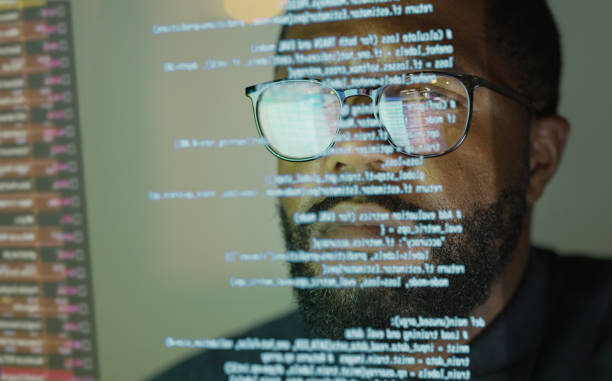Artificial Intelligence (AI) has emerged as a transformative force, revolutionizing industries and enhancing our daily lives. At the heart of this technological revolution are the skilled AI developers who possess the expertise to create and implement the algorithms and models that power machine learning systems and other AI applications.
In this article, we will delve into the key responsibilities and duties of AI developers, shedding light on the technical prowess and problem-solving skills required for success in this dynamic field.
Roles and Responsibilities of an AI Developer
AI developers play a pivotal role in the development of AI-driven software and systems. Their responsibilities encompass various stages of the AI development process, starting from data preparation to the deployment and maintenance of AI systems. Let’s explore each of these roles in more detail.
Data Collection and Preprocessing
One of the primary tasks of an AI developer is to collect and preprocess data. This involves sourcing relevant datasets, cleaning and organizing the data, and ensuring its quality and integrity. Data preprocessing is a critical step as it lays the foundation for accurate and reliable AI models. AI developers employ techniques such as data normalization, feature engineering, and outlier detection to optimize the data for subsequent stages.
Algorithm Selection and Model Building
Once the data is preprocessed, AI developers move on to selecting the appropriate algorithms and building models. They leverage their expertise in machine learning and deep learning to choose the algorithms that best suit the problem at hand. This involves understanding the strengths and limitations of different algorithms and tailoring them to meet specific requirements. AI developers then train the models using the preprocessed data, adjusting parameters and optimizing performance to achieve the desired outcomes.
Testing and Evaluation of AI Models
After training the models, AI developers rigorously test and evaluate their performance. This involves assessing metrics such as accuracy, precision, recall, and F1 score to ensure the models are effectively solving the problem they were designed for. AI developers also carry out cross-validation and performance benchmarking to validate the robustness and generalizability of their models. Continuous testing and evaluation are vital to iteratively improve and refine the AI models.
Deployment and Maintenance of AI Systems
Once the AI models have been thoroughly tested and meet the required standards, AI developers move on to deploying them in real-world applications. This involves integrating the AI models into existing systems or developing new systems that leverage AI capabilities. AI developers ensure the seamless integration and functionality of the AI systems, closely collaborating with data scientists, engineers, and other stakeholders. They also monitor the performance of the deployed systems and provide ongoing maintenance and updates to ensure optimal functioning.
Skills Required for AI Development
To excel in the field of AI development, certain skills are indispensable. Let’s explore some of the key skills that AI developers must possess:
Strong Programming Skills
AI developers must have a strong foundation in programming languages such as Python, R, or Java. Proficiency in these languages allows them to efficiently implement and optimize AI algorithms and models. Additionally, knowledge of frameworks such as TensorFlow, PyTorch, or scikit-learn is essential for leveraging pre-built tools and libraries in AI development.
Deep Understanding of Machine Learning
A solid understanding of machine learning concepts and techniques is critical for AI developers. This includes knowledge of supervised learning, unsupervised learning, reinforcement learning, and deep learning. AI developers must be well-versed in various machine learning algorithms and their applications to effectively develop and train AI models.
Problem-Solving and Analytical Thinking
AI development is inherently problem-solving oriented. AI developers must possess strong analytical skills to identify and define problems, formulate effective solutions, and iterate through different approaches. They must be able to think critically and creatively to overcome challenges and optimize AI models for peak performance.
Continuous Learning and Adaptability
The field of AI is constantly evolving, with new advancements and techniques emerging regularly. AI developers must be committed to continuous learning and staying up-to-date with the latest trends and developments. This includes keeping abreast of research papers, attending conferences and workshops, and actively participating in the AI community. Adapting to new technologies and methodologies is essential for AI developers to remain at the cutting edge of AI development.
AI Development Process
The AI development process is a systematic approach that encompasses various stages, each building upon the previous one. Let’s take a closer look at this process:
Define the Problem
The first step in AI development is to clearly define the problem that needs to be solved. This involves understanding the problem domain, gathering requirements, and identifying the desired outcomes. Effective communication and collaboration with stakeholders are essential in this stage to ensure alignment and clarity.
Data Collection and Preparation
Once the problem is defined, AI developers embark on collecting and preparing the necessary data. This may involve sourcing data from various sources, cleaning and preprocessing the data, and ensuring its quality and relevance. Thorough data preparation is crucial for training accurate and reliable AI models.
Algorithm Selection and Model Building
With the preprocessed data in hand, AI developers move on to selecting the appropriate algorithms and building models. This involves utilizing their expertise in machine learning and deep learning to choose and customize algorithms that best fit the problem at hand. AI developers then train and optimize the models using the preprocessed data.
Testing and Evaluation
Once the models are trained, AI developers rigorously test and evaluate their performance. This includes assessing metrics such as accuracy, precision, recall, and F1 score. AI developers also conduct cross-validation and performance benchmarking to validate the robustness and generalizability of their models. Iterative testing and evaluation allow for continuous improvement and refinement.
Deployment and Maintenance
After thorough testing and validation, AI models are deployed in real-world applications. AI developers integrate the models into existing systems or develop new systems to leverage AI capabilities. They ensure the seamless integration and functionality of the AI systems and provide ongoing maintenance and updates to ensure optimal performance.
Ethical Considerations in AI Development
As AI technologies become increasingly powerful and pervasive, ethical considerations in AI development are of paramount importance. AI developers must be mindful of the potential biases and discriminatory outcomes that can arise from AI algorithms.
They must prioritize fairness, transparency, and accountability in their development processes to ensure that AI systems do not perpetuate existing inequalities or harm individuals or communities.
Conclusion and Future Prospects in AI Development
AI developers are at the forefront of innovation, shaping the future of intelligent systems. Their responsibilities encompass data preparation, algorithm design, model training, testing, deployment, and maintenance. Possessing strong programming skills, a deep understanding of machine learning, problem-solving abilities, and adaptability are indispensable for success in this dynamic field.
As AI continues to advance, the demand for skilled AI developers will only grow, offering exciting opportunities for those who are passionate about pushing the boundaries of technology and unleashing the power of artificial intelligence.
In conclusion, AI developers play a vital role in harnessing the potential of AI technologies. Their expertise and dedication drive the development and deployment of intelligent systems that have the power to revolutionize industries and enhance our lives.
With continuous learning and a commitment to ethical considerations, AI developers are poised to lead the way in creating a future where AI is seamlessly integrated into every aspect of our world, making it smarter, more efficient, and more accessible for all.






